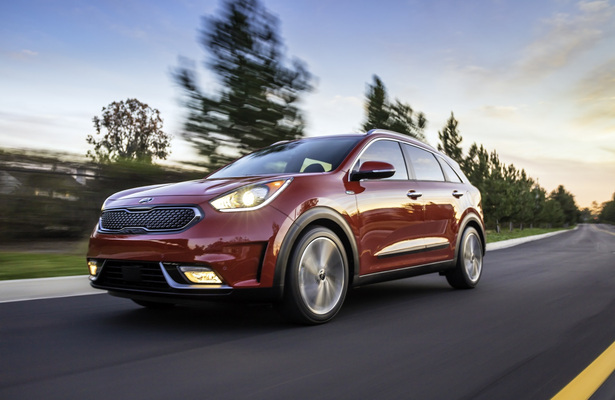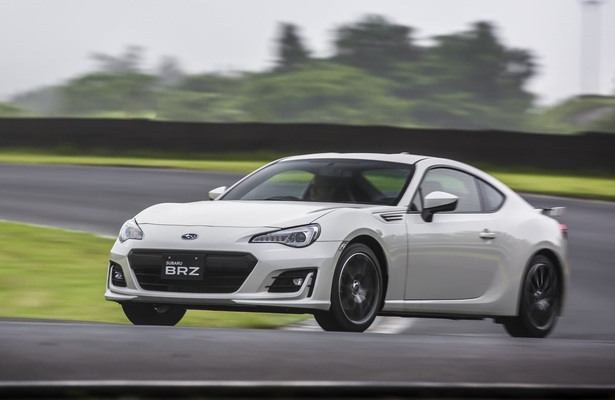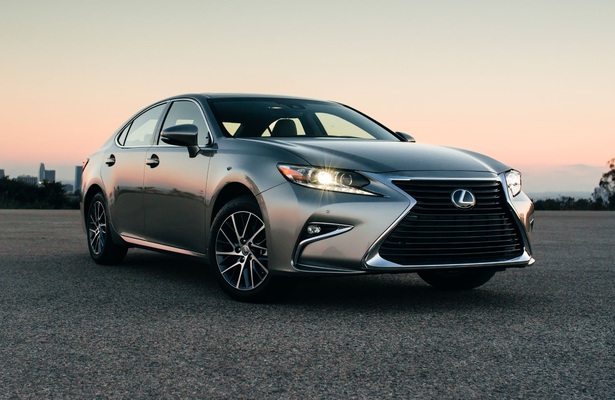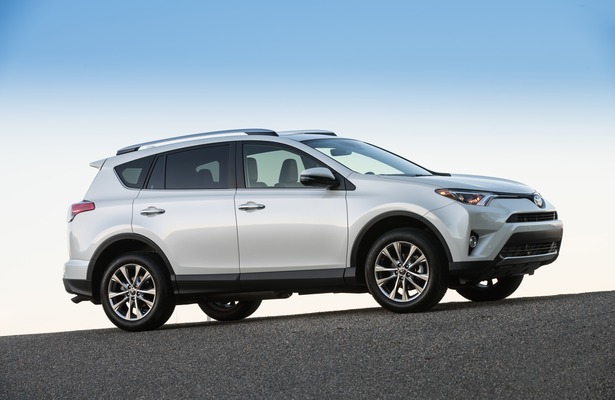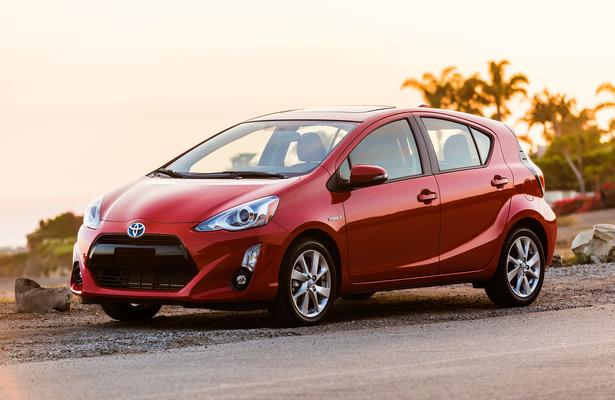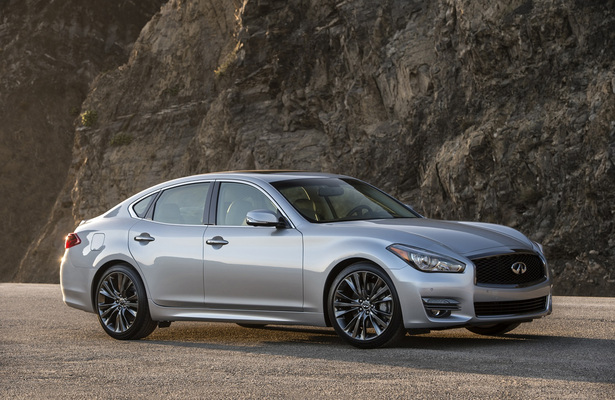Reliability is a key factor for many people shopping for a vehicle. They want to ensure that all the money they spend on a car doesn't go to waste on a vehicle that will need a lot of repairs. Predicting whether or not a new car will be reliable in the long term is never easy, but the fine folks over at Consumer Reports have done the hard work it takes. By analyzing 17 trouble areas, both big and small, the publication managed to come up with a list of 2017's most reliable vehicles. If you're in the market for a new car, at least one of these should be at the top of your list.
2017 Kia Niro
|
Best for the commuter |
|
If you love the idea of a crossover and the efficiency of a hybrid vehicle, there’s only one choice for you: Kia Niro ($22,890 base MSRP). The Niro offers a 1.6-liter four-cylinder that’s paired with an electric motor and mated to a six-speed dual-clutch automatic transmission. Altogether its good for 139 hp. EPA-estimated fuel economy numbers are listed at 51 mpg city and 46 mpg highway.
However, if you buy the highest trim level, you’ll see those numbers drop due to weight. Still, the Niro’s attractive exterior, comfortable and functional interior and top-notch tech features, including Apple CarPlay and Android Auto, make up for it. Also, with Consumer Reports identifying it as one of the most reliable vehicles of 2017, you can bet that this hybrid will be around for years to come.
2017 Subaru BRZ
|
Best for the enthusiast |
|
The enthusiast on a budget should look no further than the Subaru BRZ ($25,495 base MSRP). This rear-wheel-drive sports coupe offers adequate power in a nimble and fun-to-drive package. The 2.0-liter four-cylinder engine makes 205 hp and can be mated to either a six-speed manual or six-speed automatic transmission. It and its cousin, the Toyota 86, make affordable and fun motoring available to just about anyone.
You may want your sports car with more power, and for that, you’ll have to look elsewhere, but in general, the BRZ delivers. It’s a car designed for whipping down a canyon road, and though some folks want a few more horses under the hood, we think it’s a bargain for the money. The fact that Consumer Reports identified it as one of the most reliable cars of 2017 is just icing on the cake. If you want a sports car you’ll have for many trouble-free years to come, this is it.
2017 Lexus ES
|
The Lexus ES ($38,900 base MSRP) is the car for the person opposite of the Subaru BRZ buyer. It’s a soft and luxurious sedan that’s built for cruising instead of tight technical roads. It offers either a 3.5-liter V6 engine that makes a respectable 268 hp or a 2.5-liter four-cylinder engine paired with an electric motor that makes 156 hp. If you want efficiency, get the hybrid and you’ll see 40 mpg city and 39 mpg highway, according to the EPA.
The ES is the car for the man or woman who wants to get to their destination in comfort and style without any drama. Its infotainment system could stand to be improved, but otherwise, it's simply a good car with plenty of space and high-class interior materials. With Consumer Reports listing it as one of the most reliable cars of 2017, there’s little not to love, as long as you don’t have sporting inclinations, of course.
2017 Lexus GS
|
The Lexus GS ($46,310 base MSRP) is the luxury rear-drive (or AWD) mid-size sports sedan that likely won’t be around much longer, Lexus has hinted that the GS will fade out of its lineup in the upcoming years. This is a shame because it’s quite good and more affordable than most of the competition. The car comes with a 2.0-liter turbocharged four-cylinder engine that makes 241 hp, a 3.5-liter V6 that makes 311 hp, or a 3.5-liter V6 and electric motor hybrid powertrain. If you want a truly sporty GS, get the GS F model and you get a 5.0-liter V8 that makes 467 hp as well as some other performance parts.
The GS is a good all-around sedan, and with the number of trims and options, you can make it your own. We love the GS F version of the car, but even the base model offers an agreeable package. Like with the ES, the infotainment controls could be better, but aside from that, it’s a solid car. It also seems that it will be relatively trouble-free thanks to the fact that Consumer Reports listed it among the most reliable cars of 2017.
2017 Audi Q3
|
The Audi Q3 ($31,800 base MSRP) is the quiet, luxurious, and comfortable-riding crossover that comes with a lot of prestige and content for the price. It’s cheaper than most of its competitors, and while not quite as sporty, efficient, or interesting as them, it’s still a solid package. The only engine option is the 2.0-liter turbocharged four-cylinder that makes a respectable 200 hp. Power goes to the front or all four wheels.
The Audi Q3 is a classy and well-built machine with a quality MMI infotainment system that is robust and easy to use. If you start to add a lot of options, you’ll watch the price jump considerably, but other than that and its rather small seat, there’s little to complain about. Also, as expected for Audi vehicles, Consumer Reports listed the Q3 as one of the most reliable vehicles of 2017.
2017 Toyota RAV4
|
Best for the active lifestyle |
|
The Toyota RAV4 ($24,420 base MSRP) is an excellent choice for anyone looking for a good family crossover. It offers a well-rounded package that’s safe, comfortable, and decent to drive. The RAV4 is powered by either a 2.5-liter four-cylinder engine that makes 176 hp that is mated to a six-speed automatic transmission or a hybrid powertrain consisting of a 2.5-liter four-cylinder paired with an electric motor that makes 194 hp and is mated to a CVT. Front-wheel drive is standard and all-wheel drive optional.
The Toyota RAV4 offers a fantastic mix of power, efficiency, practicality, technology, and adventurous capability thanks to its available AWD and higher ride height. It’s not the most luxurious of models, but then its affordable price tag necessitates that. One thing’s for sure from its long-standing reputation, and the fact that Consumer Reports named it one of the most reliable vehicles of 2017, it’ll last a long time and be relatively trouble-free.
2017 Lexus IS
|
The Lexus IS ($37,825 base MSRP) offers a compact sports sedan package that’s on par if not better than the German stalwarts in this segment. It’s interesting to look at, composed on the road, and offers excellent driving dynamics and a comfortable cabin. It has three engine options: a 2.0-liter turbocharged four-cylinder making 241 hp, 3.5-liter V6 that makes 255 hp, and another version of the 3.5-liter V6 that makes 306 hp. All engines mate to automatic transmissions, either an eight-speed or six-speed depending on engine and drivetrain (RWD or AWD).
The IS offers a sporty, fun, and luxurious package. It does so with a lot of standard equipment like Lexus Safety System+, power moonroof, push-button start, and Bluetooth. Also, it ranks higher than its German counterparts for reliability for 2017, according to Consumer Reports.
2017 Toyota Prius V
|
If you’re a Prius fan but can’t make do with the regular vehicle's size, the Toyota Prius V ($26,675 base MSRP) is for you. It’s basically a supersized version of the popular hybrid. Like a supersized fast food meal, you get more, but this doesn’t necessarily make it better. The Prius V will satisfy only those people who love the Prius but need additional legroom and cargo space.
It’s 1.8-liter four-cylinder engine and electric motor combination makes a low 134 hp. That power is applied to the front wheels via a CVT. This car offers little driving enjoyment, but it does provide a lot of efficiency for a vehicle of its size at 43 mpg city and 39 mpg highway. Also, it’ll likely last for ages. The Prius model is known for its reliability, and Consumer Reports listed the Prius V as one of the most reliable vehicles of 2017.
2017 Toyota Prius C
|
If the both the Prius V and the regular Prius are too big for your needs, then you should consider the Toyota Prius C ($20,150 base MSRP). This shrunken version of the automaker’s popular hybrid offers a seriously affordable gas-electric option to consumers in a subcompact package. It’s user friendly and has a lot of standard safety features and tech. Its 1.5-liter four-cylinder engine and electric motor make a paltry 99 hp. That combination mates to a CVT.
The low horsepower may turn you off, but the fact that the car gets 48 mpg city and 43 mpg highway should pique your interest. It’s not an exciting car, and it’s not going to impress many people, but it will get you where you’re going efficiently. Also, because it’s listed as one of 2017’s most reliable cars by Consumer Reports, it’ll likely do that for many trouble-free years.
2017 Infiniti Q70
|
The Infiniti Q70 ($50,100 base MSRP) is long in the tooth, and there are other more-modern mid-size luxury sedans available. That’s why it’s often overlooked. However, just because it’s a little dated, doesn’t mean it’s a bad car. The Q70 offers commendable power, smooth ride, upscale interior, and attractive exterior. Under the hood is one of three options: a 3.7-liter V6 making 330 hp, 5.6-liter V8 making 420 hp, or 3.5-liter V6 and electric motor hybrid powertrain making 360 hp. All engines get a seven-speed automatic transmission and the car comes with either rear or all-wheel drive.
The Q70 comes up short in many categories. Its steering isn’t well-calibrated and the driver aids can feel intrusive at times. Also, the infotainment system is dated and lacks many of the features found in competitor’s cars, like Apple CarPlay and Android Auto. Despite this, it’s worth considering for its’ powerful engine, luxurious exterior and interior, and top-notch reliability, according to Consumer Reports.
 Why shoot for reliability?
Why shoot for reliability?
- Fewer maintenance costs.
- Longer overall vehicle life.
- You won't necessarily pay more for a more reliable car.


